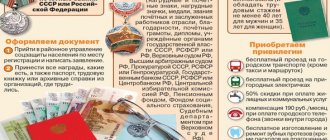If you are interested in how to make a request to the archive about relatives, then this article will help with this. All requests received from the public can be divided into three main types:
1. Social and legal nature (in the form of various certificates - on work experience, etc.).
2. Thematic in nature (carrying biographical information about a specific person).
3. Genealogical.
We will not consider the first two types now. Let's focus on the third - how to make a request to the archive about relatives.
They will help you for money
There are specialized family research bureaus where anyone who wants to save time and get rid of hassle can order genealogical information for a fee. Employees of such institutions can, for a fee (quite symbolic), formulate a competent text of the application and provide the exact address of the archive where you will apply.
Next we will talk about the features that need to be taken into account when communicating with employees of storage departments, reading rooms and other “public places”. It is they who will have to process and satisfy requests for relatives coming from interested citizens.
Nobody owes you
Before you make a request to the archive about relatives, try to imagine what kind of specialists you will be dealing with. This psychological factor can play a significant role in the success of the entire enterprise. According to statistics, the staff of institutions such as state archives are among the intelligent, educated people. Activities consisting of processing archival requests are not among their immediate responsibilities. They do not receive any income from such work (despite the fact that this service is paid, all the money goes to the treasury).
Specific performers do not have anything beyond their salary; in connection with all of the above, the application may well be rejected without explaining the reasons for the refusal, or with a formal response in the form of an unsubscribe. Sometimes federal institutions publish announcements on their own Internet resources of the following nature: “Due to the busy schedule of specialists, genealogical requests are not processed.”
Samples and forms for requests or appeals
Request to the archive about relatives standard. There, in the regional archives, reports from curators from the NKVD in the village council or district about the movements of the population may be preserved. How to make a request to the archive about relatives standard. (This can be data about relatives. As follows, if you want to transfer to the custodian the ability to issue certificates on social and legal requests and save your time, then mention this condition in the outsourcing agreement.
Errors can occur both in writing numbers and in reading them. If it is confirmed that the majority of the citizens of our village are supporters of holding a new holiday, the initiative will be submitted for consideration to a session of the local council in the manner prescribed by law. In the certificate of education, if there is no information in the documents about the citizen’s graduation from an educational institution, it is indicated in which course or class he studied. For more in-depth work on your ancestry, it is best to use special programs, information from which can be saved, archived, duplicated and processed on any device and at the same time be independent of the network.
We recommend reading: Law banning the sale of energy drinks to minors
And here we must
As for the civil registry office, the situation is somewhat different. Answering inquiries about relatives is the direct responsibility of employees of these institutions. The applications received may be completely different. Someone is looking for documents relating to the conclusion or dissolution of a marriage between parents or other family members. Another makes a request to the archive about relatives for citizenship. The third is busy looking for a death or birth certificate of a distant ancestor. The fourth, living abroad, can send a request to the archive about relatives in Russia. Changes in legislation occur quite often, so all the nuances of the procedure are clarified immediately at the time of a specific application.
Such an institution will most likely require proof of your relationship with the person about whom you are trying to obtain information. Most likely, when researching the history of your own family, you will come across a situation that allows you to request data exclusively about deceased ancestors. Such a request without additional permission is available only to the children of the person mentioned. That is, archive workers proceed from the assumption that the restoration of certificates and other documents will be carried out by people themselves or with the help of authorized representatives.
How to submit a request to the registry office archive about relatives, sample
What do people do when there is a need to restore lost information of various types or simply find out socially significant information (this could be data about relatives, obtaining copies of lost documents, restoring information about work, awards, location of people or institutions and other background information)?
If you submit a request for a living person, no one at the registry office will issue you documents. It is necessary that this person himself appears for requests with an identification document. Let me remind you that since the reign of President Yeltsin, in Russia such documents have been a passport of a Russian citizen.
Who can access a request in the archives of a relative’s personal file?
What does this mean in practice? If your parents are alive, do not try to apply for relatives through a generation (i.e. grandparents). No one is obliged to give out such information to their grandchildren. If your mother or father, for any reason, is unable to engage in the procedure for searching for information, their task is to notarize a power of attorney for the right to engage in such activities. The executor can be any person - not necessarily a relative.
And, nevertheless, you can clarify the specific algorithm of search actions only at the moment an individual situation arises. It depends not only on the degree of relationship of the applicant with the object of the search, but also on the legal situation at the current moment. These strict rules were not invented in vain. If you think about it, everything is quite logical and fair. It is unlikely that any of you would be happy to discover the following fact: some strangers completely freely gain access to the biography and other important nuances of the life of your relatives, or delve into the history of the family, looking for some kind of compromising evidence (often for unseemly purposes).
Get to the point
So, we have understood the basic concept of the event. Now let's move on to specific actions. How exactly to make a request in order to get it executed quickly and without obstacles? First of all, you should establish which of the city archives or registry offices should submit your application for the search. Where should I contact the central archive or its local branch? An object is selected for such purposes, depending on the task that you set for yourself. This may be obtaining certain information or restoring any documents.
The time factor is also important - how long ago the event of interest occurred (death, birth, marriage). According to legislative norms, a document created less than a hundred years ago must be kept in the territorial registry office. In practice, often relatively “young” records related to acts of civil status also end up in regional archival repositories.
After the revolution...
Thus, if you are interested in a family document dating back to the Soviet period (for example, you are making a request to the archive about relatives who participated in the Second World War), the application should be sent, first of all, to the civil registry office at the place of the event you are looking for. If the paper managed to get into the federal archives, you will receive information about this in a response letter.
Currently, government services are purposefully developing a common electronic database, which receives all the necessary information about citizens in a centralized manner. When the system is well enough debugged, it will be possible to send a request to the regional archive, and the task of finding the right people or documents will be significantly simplified.
How to submit
Thanks to the Internet, the system of submitting applications to state archives has been simplified. Previously, an application was registered upon a personal visit and the presence of a passport. Or by sending a letter by mail, which delayed the work process.
With the development of the MFC network, you can submit an application at any branch of the center. When visiting, do not forget to take your passport with you. In the terminal, select the appropriate service to queue. The staff will tell you how to act correctly. The service is provided free of charge. But the time frame for registering and receiving a response will increase.
Nowadays, the most common method is sending emails. It is the fastest and most reliable at the moment. Be sure to indicate the subject of the letter so that employees can quickly forward the work request to the appropriate department. Attach a statement to the letter.
The second method, using the State Services portal, is less popular. But it is the most reliable. Valid only for citizens who have completed account verification. In the “Service Catalog” tab, you must select the appropriate body and service, then fill out all the proposed forms and send a request.
If it becomes difficult to visit an archive located in another city, you can use the Internet. Find out the physical and email address on the official website. And send a request in one of the ways convenient for you.
We bring to your attention a video that tells you how and where to submit a request to the archive.
...and before it
If your request concerns facts relating to the pre-revolutionary period, then you will have to look for them in the metric notebooks of the church. It was there that the information you required was entered before civil registration books appeared. These notebooks served as completely official documents until 1917.
The procedure in this case should be exactly the opposite. Start your request with the regional archive of the region where the person you are interested in lived or where events important to you took place. If the necessary records are not stored in their funds, you will most likely be redirected to the registry office.
Government services to the population
A repeated certificate of state registration of a civil status act or another document confirming the presence or absence of state registration of a civil status act is issued to the applicant by the civil registry office at the place of residence or stay of the person who sent this request.
- a receipt for payment of the state fee in the amount of 200 rubles for a repeated certificate of state registration of a civil status act, 100 rubles for a certificate confirming the fact of state registration of a civil status act (or a document that is the basis for providing tax benefits to individuals and organizations).
20 Jul 2021 toplawyer 1307
Share this post
- Related Posts
- What Amount is Given to a Murmansk Pensioner for Traveling the City. Transport
- How to find out if you are ready for citizenship or not
- What are the grounds for acquiring citizenship?
- Limit of insurance compensation for compulsory motor insurance 2020
Things to remember
Sometimes there may be cases of confusion when the boundaries of districts change according to the administrative-territorial division. This or that settlement (city, village, hamlet), together with its church parish, could belong to different provinces in different years. Accordingly, the ownership of church registers will have to be clarified in two separate regional archives.
It is quite possible that, having not found data in one of them, the storage workers will not warn the citizen about such a possibility. The response to the request will be a classic reply with the wording “not found”. If you have even the slightest doubt about the thoroughness of the approach to processing your request, try to duplicate it by sending an application to neighboring regional archives, where church and any other documents containing records of ancestral rituals could theoretically be transferred. In some cases, it is advisable to contact the central archive.
What and how to write
Let's now move on to the actual application procedure. The archive request sample does not contain anything complicated. Text support must be written correctly. Such appeals to the registry office and storage institutions are quite similar in form, so we will not consider both options here. So, the content of a request to the archive about relatives conventionally consists of three text blocks: the address of the organization to which the application was sent, a brief summary of the essence of the situation and information about the applicant. Each part must be completed. If you miss any of them, you will definitely not achieve the desired goal.
Before writing a request to the archive about ancestors, do not be lazy to go to the institution’s website or call by phone and find out whether such a service is provided as such. If work is underway on search requests from citizens, inquire about the method by which your application should be sent. Some places accept such letters by e-mail, while others prefer to deal with traditional paper correspondence. There you can also find out how much a request to the archive about relatives costs.
If the work is to be done exclusively on physical media, that is, in the form of written requests and responses to them, do not forget to include a spare envelope. Budgetary organizations often do not have their own additional funds for mailing. Agree, it is very disappointing if a request that is important to you is ignored for such a trivial reason. It is logical to assume that the smaller the archive, the more modest the budget allocated for any additional tasks.
What can be evidence?
And the final touch is your signature. Application to the archive for confirmation of work experience If you do not include the necessary details in the letter, then you will not receive a response to it. The difficulty lies in obtaining information about the work of a company that is no longer functioning, and the documents are lost in the warehouse.
The citizen independently submits the request to the archive, MFC or Pension Fund. If a person took the completed form to the last two institutions, then these state. organizations independently contact the archive.
The certificate is signed by the manager or personnel inspector by proxy (indicating the date and number of the latter). The document is certified by a seal.
Confirmation of work experience with witness testimony Witness testimony can be a good help for citizens who need to confirm their work experience if, for some reason, other documents are missing. To do this, the employee should write an application to the personnel department of the enterprise, where personalized accounting is carried out.
Employers often incorrectly fill out work books and other documents that may be useful when applying for a pension. But if some data is lost or filled in incorrectly, do not be upset. For such situations, state archives have been created, into which you can make a request for confirmation of work experience.
Upon written request from an employee who has not received a work book after dismissal, the employer is obliged to issue it no later than three working days from the date of the employee’s application. Further, there is Decree of the Government of the Russian Federation dated April 16, 2003 N 225 (as amended.
The document must be signed by the manager and refer to the numbers of archival files and sheets in them. How to make a request to the archive to confirm work experience All data of liquidated organizations is contained in the archives of municipalities, regions and territories. Every adult citizen has access there.
Mandatory data
What nuances should be kept in mind regarding the content of the document? The application is sent to the director of the archive. The address and name of the institution are written in the upper left corner, and the sender’s details are also indicated there to maintain visual unity. You can also find out specific names and surnames on the institution’s website.
After applying to the position of director of the state archive (indicate which one and where it is located) with your last name, first name, patronymic, you enter in the form your full name and actual address of residence where you plan to wait for correspondence. You should definitely include either a phone number or an email address (or better yet, both) as your contact information. Of course, if you ignore these requirements, the request will be considered anonymous, and you will not have to wait for it to be fulfilled.
About the sister of talent
How to make a request to the archive about relatives as productively as possible? Are there any rules for writing an application that increase the chances of success? There is a fairly common myth that a detailed presentation of the essence increases the likelihood of an equally detailed answer. Unfortunately, this approach can only be considered relevant in collaboration with private paid genealogists. If we are talking about a government institution, everything is exactly the opposite. Objectives should be formulated as concisely and clearly as possible. This increases your chances of influencing archivists to consider your request as quickly as possible.
An essay with details of the biography of ancestors that are interesting only to you is not worth writing. You should indicate only the required number of exact facts - dates and places of birth, localities, names and surnames of ancestors, the degree of your relationship. It would also be a good idea to indicate the type of record you are interested in. If the data is specified at the “approximately” level, the search time (as well as the cost of executing the request) will increase, and sometimes the information will not be found at all. Complete your request with the obligatory phrase that the actions you are taking are being carried out with the goal of restoring the genealogy, which is necessary for certain compelling reasons, and the work of the archive workers will certainly be paid. It will be ideal if you fit the essence of the matter into three or four lines.
Archive request - sample
As an example, we provide a sample of an application to the archive with a similar request: “Please find records of the death (birth) of my great-grandmother (last name, first name, patronymic) for **** year in village (city, village) N. If there are no metrics, I will grateful for information about the surviving closest genealogical sources relating to the specified period. In case of a successful search, it is advisable to issue an archival certificate in the form of an extract, photocopy or photo of a page. I am ready to pay for the services in full.”
A similar text is sent in the case of a marriage ceremony. Requests of a large-scale nature with vague wording such as “research my family from the point of view of genealogy” or “I am interested in the pedigree of my surname” are extremely unwelcome. They can scare off performers. Solving such a global problem is an extremely labor-intensive task, which is not officially among the responsibilities of archive staff. After all, family genealogy is not his core activity.
Confirmation of preferential work experience through the enterprise archive
Hello! My dad worked for a construction company from 1989 to 2021 as a painter, which gives him the right to retire early at age 56. When contacting the Pension Fund of Russia, he was informed of the need to submit a preferential clarifying certificate, but at the moment this enterprise has been liquidated and all documents have been archived. How, in this case, can he confirm the special nature of the work when assigning a pension payment, and why is it not enough just to make an entry in the work book?
- This application can be sent by mail, after which a response in the form of an archival certificate (extract) will be sent to the address specified in the application.
- You can also personally come to the archive department with documents (passport, work book and SNILS) and receive a certificate about the required periods of work.
We recommend reading: Earth at the birth of 3 children in 2021








